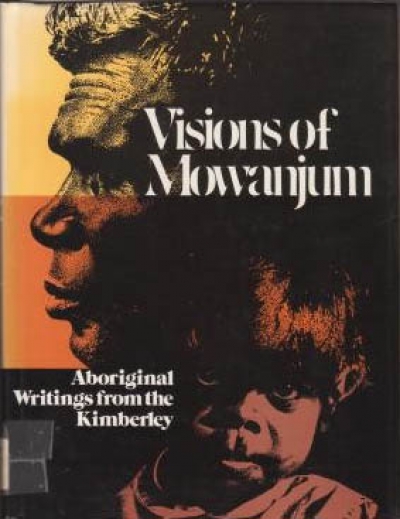Rigby
Foreigners: A new collection of short stories by David Martin
by Clement Semmler •
The House at Hardie’s Corner by Helen H. Wilson & Landscape with Landscape by Gerald Murnane
by Ben Haneman •
Visions of Mowanjum: Aboriginal Writings from the Kimberley by Daisy Utemomorrah et al; Maisie McKenzie
by David Martin •
Don Dunstan’s Australia by Don Dunstan, photography by Julia Featherstone
by Bruce Muirden •





